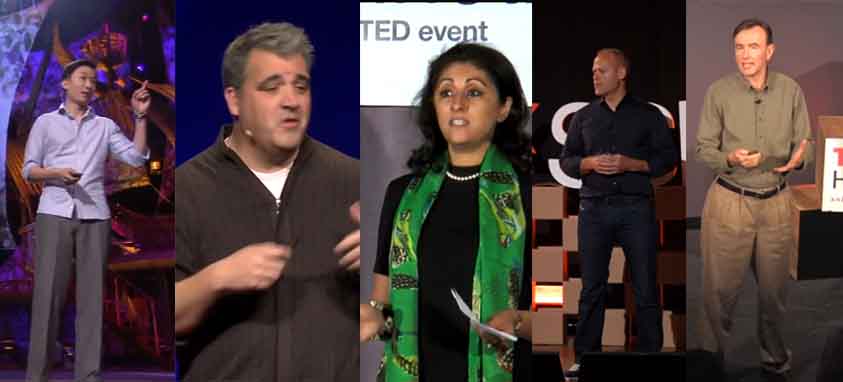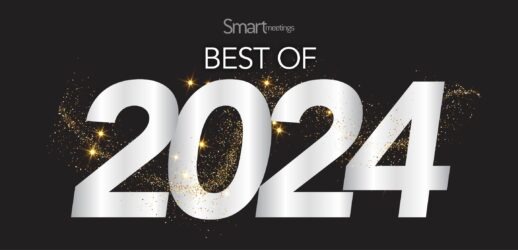Looking for some inspiration on your morning commute? TED talks and TEDx talks (independently organized TED events presented in TED format) are a brilliant way to get your morning dose of inspiration.
There are countless best practices TED talks for general workplace improvements, but some are ideal for meeting planners’ particular pain points and needs. Here are five of our favorites:
1. How to save the world (or at least yourself) from bad meetings, by David Grady
David Grady is an information security manager who believes that strong communication skills are a necessity in today’s global economy. He has been a print journalist, a “PR guy” and a website producer, and has ghostwritten speeches and magazine articles for Fortune 500 company executives. His talk calls attention to an epidemic of bad, inefficient, overcrowded meetings and how to stop them from bringing down company morale.
2. Design for all five senses, by Jinsop Lee
Jinsop Lee is an industrial designer who believes that there is more to event design than seating charts and floral arrangements. “Five-sense design” inspires event planners to consider smell, touch, sight, sound and taste in order to execute a memorable and satisfying experience.
3. The power of meetings by Henric Ehrenblad
Henric Ehrenblad is the cofounder of global tech company Wisepsace and former employee at Ericssson in numerous roles. In his Tedx Talk, Ehrenblad dissects how meetings kept his company’s energy going during tough times. What makes or breaks a meeting, according to Ehrenblad, is the energy level. So how do you keep the energy up?
4. The Art of facilitation: Changing the way the world meets, by Jay W. Vogt
Jay W. Vogt is founded Peoplesworth, a private practice in organizational development. In this talk, he discusses the relationship between group meeting structures and the results we get from those gatherings.
5. The Personal and Professional Joy of Networking by Raheela Anwar
Raheela Anwar is an engager and facilitator on numerous boards, who talks about being a connector of people – whether it’s for a professional or personal benefit, and how to start becoming an active networker.




